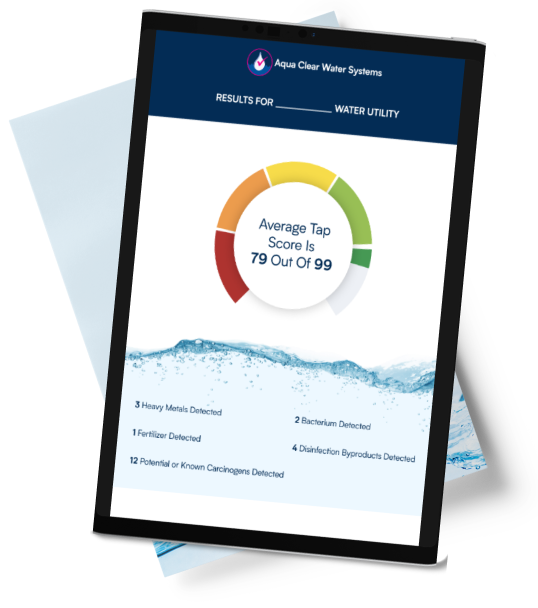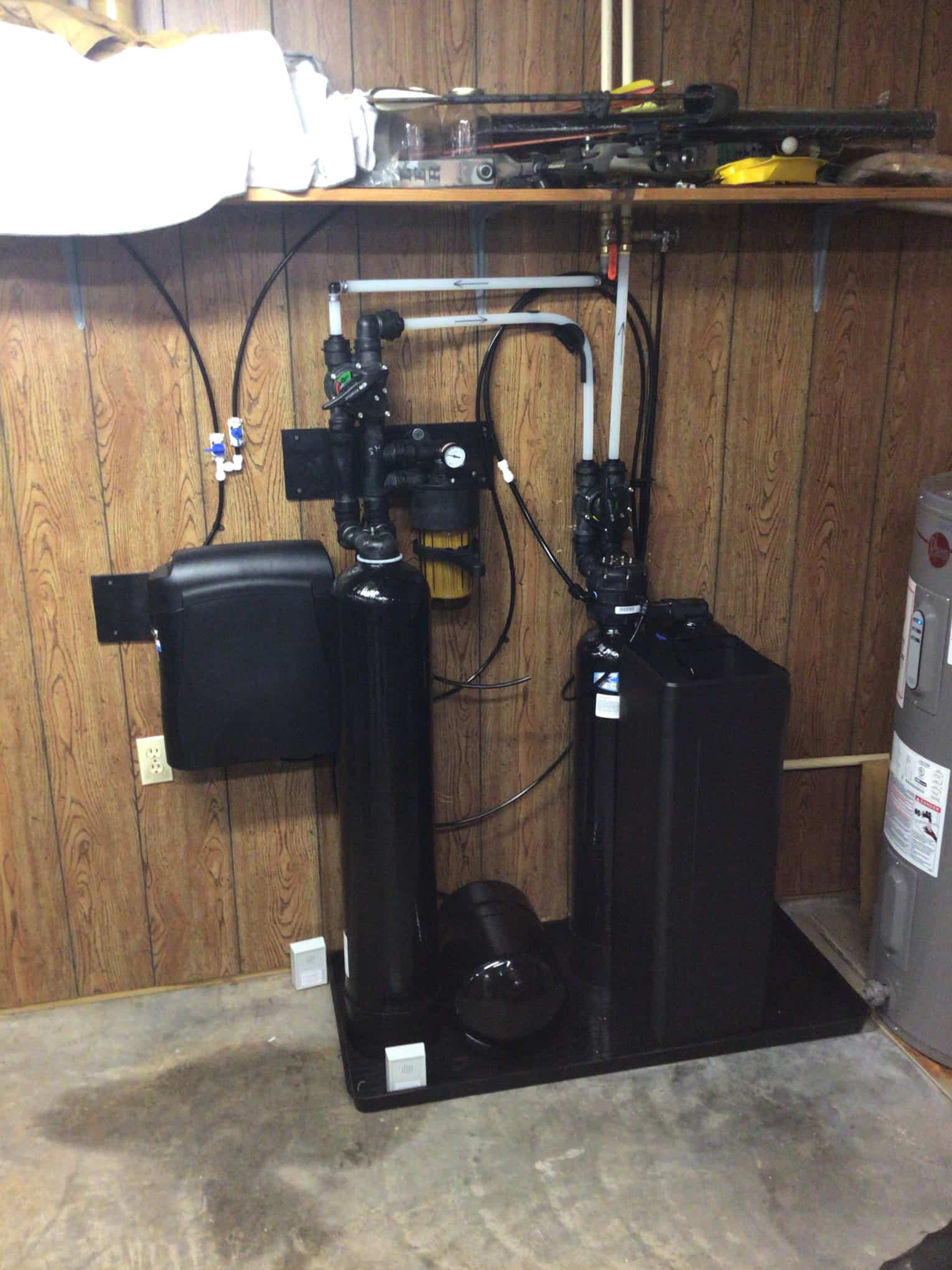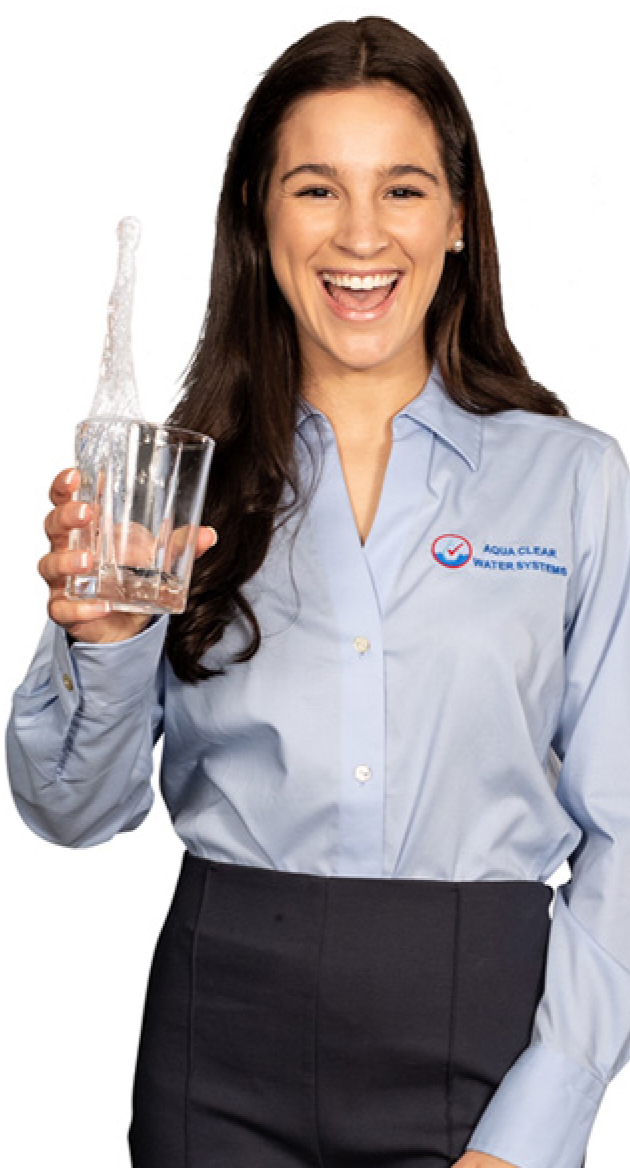The short answer: no. A water softener does not remove chlorine.
Water softeners are designed to tackle hard water by removing calcium and magnesium minerals through ion exchange. While they do an excellent job of preventing scale buildup in your plumbing and appliances, they are not built to filter out chlorine. That means if you’re on a public water supply, you’ll still have chlorine in your softened water unless you add a dedicated filtration system.
Why Is Chlorine in Tap Water?
Chlorine is added to almost every public water supply in the United States as a disinfectant. It prevents harmful bacteria, viruses, and parasites from spreading through the water system.
Think of chlorine as a bread wrapper. At the grocery store, the wrapper keeps the bread clean and safe. But once you bring it home, you don’t eat the wrapper, you throw it away. Similarly, chlorine protects water as it travels through miles of pipes, but you don’t necessarily want it in the water you drink, cook with, or bathe in.
Chlorine that remains in your water can:
- Dry out skin and hair
- Leave a strong odor and unpleasant taste
- Bleach clothes over time
- Break down rubber gaskets and seals in plumbing fixtures
What Happens to Chlorine in a Water Softener?
Water softeners use resin beads to trap hardness minerals. Unfortunately, high chlorine levels (over 1 part per million) can damage these resin beads. Over time, chlorine breaks down the plastic material in the resin, reducing the softener’s efficiency and shortening its lifespan. Chlorine also wears out pistons, seals, and other internal components, leading to costly repairs.
So while the chlorine stays in your water, it’s also silently damaging the very system you depend on for soft water.
How Do You Remove Chlorine from City Water?
To remove chlorine effectively, you need a filtration system installed before the water softener. Common options include:
- Carbon block filters: Affordable and effective at chlorine removal, but they have a low flow rate and require frequent cartridge changes. Best for single-point use rather than whole-house systems.
- Whole house carbon tanks: Larger tanks filled with granular activated carbon (GAC), catalytic carbon, or carbon blends. These systems handle higher flow rates, remove chlorine before it reaches your softener, and can last for years with minimal maintenance.
- Backwashing carbon filters: A more advanced whole house option that cleans and redistributes the carbon media automatically, preventing channeling and extending lifespan.
By installing one of these systems, you’ll protect your water softener resin and ensure your home has chlorine-free, softened water.
Does Soft Water Still Contain Chlorine?
Yes. If you only have a softener, your water will still contain the chlorine added by your city. A softener cannot remove it. For the best results, pair your water softener with a whole house carbon filter to protect your equipment and improve water quality.
Do Water Softeners Add Chlorine to Water?
No. Water softeners don’t add chlorine. If chlorine is present, it comes from the municipal treatment plant, not from your softener. The softener’s sole job is to remove hardness minerals like calcium and magnesium.
How Does a Water Softener Work?
A water softener works through ion exchange. Hardness minerals such as calcium and magnesium are exchanged for sodium or potassium ions. This process prevents limescale buildup, keeps appliances efficient, and makes cleaning easier.
However, chlorine removal requires a separate filtration stage. Granular activated carbon or catalytic carbon filters are the best choice for eliminating chlorine and chloramines.
The Bottom Line
A water softener is essential for removing hardness minerals but does nothing to address chlorine. To protect your softener from resin damage, improve water taste, and reduce the negative effects of chlorine on your skin, hair, and plumbing, it’s best to install a dedicated whole house filtration system alongside your softener.







